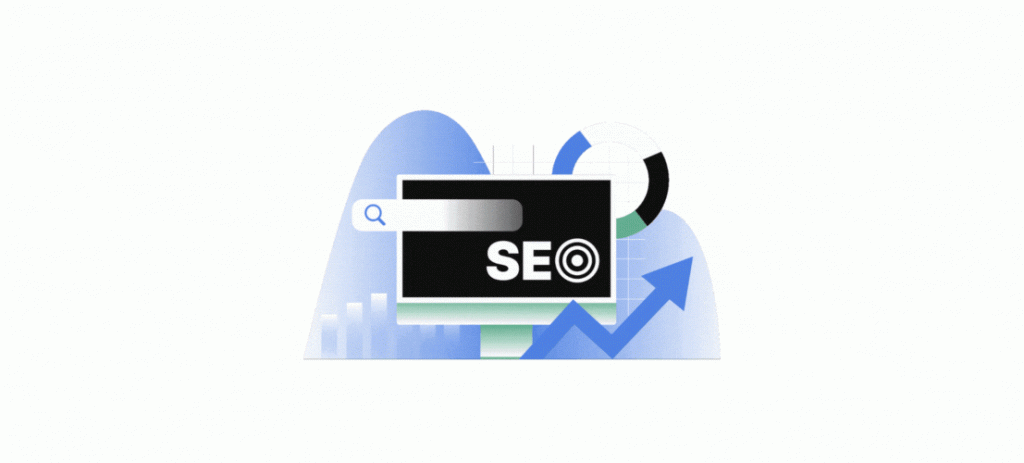As 2025 approaches, SEO is changing in big ways, with AI becoming a must-have tool for building smarter, faster, and more effective strategies. What used to be optional is now a game-changer for staying visible online.
AI isn’t here to take over—it’s here to help. From crunching data to spotting trends and polishing content, it’s reshaping how we think about SEO.
This guide will show you how to use AI to make your workflow easier and stay ahead in the ever-competitive world of search.
What is AI in SEO?
Think of AI as your SEO assistant. It uses tools like machine learning and natural language processing (NLP) to handle the time-consuming tasks—such as identifying keywords, improving content, and keeping pace with Google’s evolving algorithms.
Google has already embraced AI, with algorithms like RankBrain and BERT leading the charge. If search engines are using it, it’s worth exploring for your own strategy.
How AI is shaking up SEO
- Natural Language Processing (NLP)
NLP helps AI understand how people actually speak and search. For SEO, that means:- Content that connects: Write for humans first, and search engines second.
- Search intent over keywords: Focus on what people mean when they search, not just what they type.
- Machine learning
Machine learning helps AI learn from data, making it perfect for:- Predicting trends: Stay ahead of what people will be searching for next.
- Spotting patterns: Find what’s working (or not) faster than ever.
- AI-driven content creation
AI tools like Jasper and ChatGPT are great for brainstorming and polishing:- Fill the gaps: Discover topics your audience is searching for that you haven’t covered yet.
- Make content readable: Perfect for simplifying overly technical or clunky writing.
- Next-level keyword research
AI tools can crunch massive data sets to:- Uncover long-tail gems: Find the niche keywords your competitors are missing.
- Understand the big picture: See trends and opportunities at scale.
How to actually use AI in your SEO strategy
Smarter keyword research
AI-powered tools like AnswerThePublic and SEMrush can help you:
- Find keywords that match user intent.
- Analyse competitor strategies without spending hours digging.
Content that works (with less effort)
AI tools don’t write for you, but they do help you:
- Spot trends: What’s everyone asking about right now?
- Optimise as you go: From headings to meta descriptions, AI can polish your content in real-time.
Fix technical SEO headaches
From crawling to indexing, AI-powered tools like Lumar and Screaming Frog:
- Highlight issues before they become problems.
- Make it easier to keep up with Google’s love of fast, mobile-friendly sites.
Build better links
AI can help you find backlink opportunities by:
- Identifying sites that matter in your niche.
- Tracking your backlinks without manual spreadsheets.
Tools to try in 2025
A few favourites that can take your SEO game up a notch:
- Content Optimisation:
- Clearscope: Helps create well-rounded, high-quality content by analysing top-performing pages.
- Surfer SEO: Provides actionable insights for improving content relevance and structure.
- Clearscope: Helps create well-rounded, high-quality content by analysing top-performing pages.
- Keyword Research:
- Ahrefs: Offers in-depth keyword analysis, competitor insights, and backlink tracking.
- Keyword Insights: Clusters keywords and analyses intent to guide content strategy.
- Ahrefs: Offers in-depth keyword analysis, competitor insights, and backlink tracking.
- Technical SEO:
- Screaming Frog: A reliable tool for finding technical issues like duplicate content or redirects.
- Sitebulb: Delivers technical audits with visual reports to make site improvements clearer.
- Screaming Frog: A reliable tool for finding technical issues like duplicate content or redirects.
These tools can streamline various aspects of SEO, from content creation to technical audits, leveraging AI to enhance efficiency and effectiveness.
Remember: the tool you use matters less than how you use it.
Best practices for AI-powered SEO
- Don’t cut corners
AI can do a lot, but it’s not a free pass to use dodgy tactics. Stuffing keywords or spamming links will still get you penalised. - Keep the human touch
AI is great at streamlining the process, but people connect with authenticity. Use your voice, not just what a bot suggests. - Stay curious
SEO moves fast. Make time to learn about new tools, updates, and techniques. (Trust me, it’s worth it.)
The road ahead
AI is already changing SEO, and we’re just scratching the surface. As voice and visual search continue to grow, and as hyper-personalisation becomes the norm, AI will be the backbone of successful strategies.
The good news? There’s never been a better time to lean in, experiment, and see how AI can make your life easier—and your SEO better.
Ready to get started? Start small, test things out, and don’t forget to keep your audience at the centre of everything you do. That’s how you win, with or without AI.
